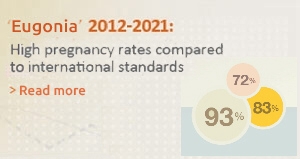There are no long term effects for the health of women undergoing IVF. Public worries (usually based on insufficient information), are understandable but are practically have no basis. All the large international epidemiological studies conclude that the risks of developing ovarian, uterine or breast cancer are comparable to the general population.
These large studies from Australia on 30000 women (Lancet 1999), from Great Britain on 5556 women (Human Reproduction 2002), from France on 9255 women (Human Reproduction 2004), as well as other meta-analyses (Nes et al 2002; Kashyap et al 2004) showed that there is not a statistical difference between women who received fertility drugs and developed ovarian, uterine or breast cancer, and women who did not take fertility drugs and developed cancer.
In addition, there is no evidence of increased risk for cancer in children born from IVF, compared to children conceived naturally (study on 17000 vs 30364 children born after IVF; Klip et al 2001).
As a precaution, all women should have a pap-test and a breast examination before the onset of IVF treatment. A mammogram is recommended for women over 35 years old. In cases with breast family history, women should consult a mastologist irrespective of their age.
The rules of regular check up, like gynecological examination, pap-test, ultrasound, breast examination, remain the same, irrespective of whether the woman has undergone or not IVF treatment.






























